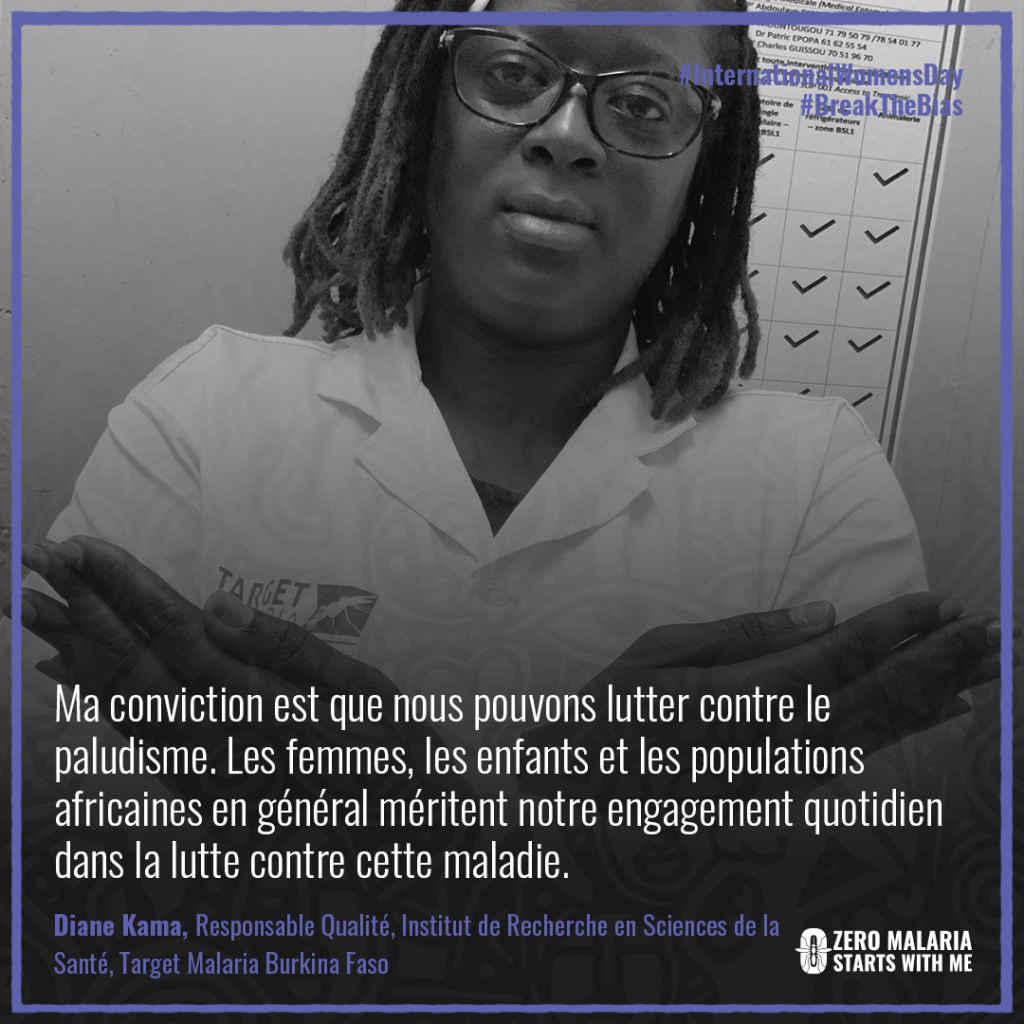Breaking the Bias at Target Malaria this International Women’s Day
This International Women’s Day, I would like to take the opportunity to recognise the women across Target Malaria – from the lab technicians and molecular biologists, to the stakeholder engagement specialists to the entomologists who are helping fight malaria.
The 2022 theme for this day is #BreakTheBias, recognising the phenomenal women around the world who are challenging stereotypes, breaking barriers and combating discrimination.
I am proud to be taking part in the #BreaktheBias campaign to celebrate International Women’s Day, alongside a number of my other colleagues, men and women, at Target Malaria.

The theme for this year reflects on the possibility of a world that is diverse, equitable and inclusive, where difference is valued and celebrated. It sheds light on the women who break the bias daily in our communities, workplaces and schools. It also highlights the important role that men have to play in uplifting women.
Women in Africa carry the heaviest burden of malaria, where 95% of cases and 96% of deaths are concentrated. The 2021 World Malaria Report highlighted that pregnant women continue to be one of the most at-risk groups.
Last year, a staggering 11.6 million pregnant women were infected with malaria in sub-Saharan Africa, with devastating consequences for both mothers and babies. Unfortunately, very few pregnant women receive preventive antimalarial treatment. I encourage you to sign this letter to help us influence top-level decision-makers to increase their efforts to protect more pregnant women from malaria. The letter and signatures will be delivered to heads of state and ministers of health ahead of the African Union Summit in 2023.
Women carry the heaviest burden of childcare responsibilities, meaning they are also disproportionately affected by the toll that malaria takes on children. Greater childcare responsibilities during illness means women might not be able to access the same opportunities as their male counterparts.
Ending malaria once and for all could have a transformative effect on African women, as they no longer would be at risk during pregnancy, or lose their children to this deadly disease.
I stand strong in the belief that we can win this battle against malaria. Women and children, the primary victims of malaria, deserve our continuous engagement in the fight against this treatable and preventable disease.
As a Quality Assurance Manager, I help ensure that our laboratories achieve and maintain the highest standards, helping ensure the success of our research. I am passionate about the importance of having women at the forefront of scientific innovation. As we break the bias in our laboratories, we are creating the building blocks to ensure that the women who currently bear the heaviest burden of the disease not carry it in future.
